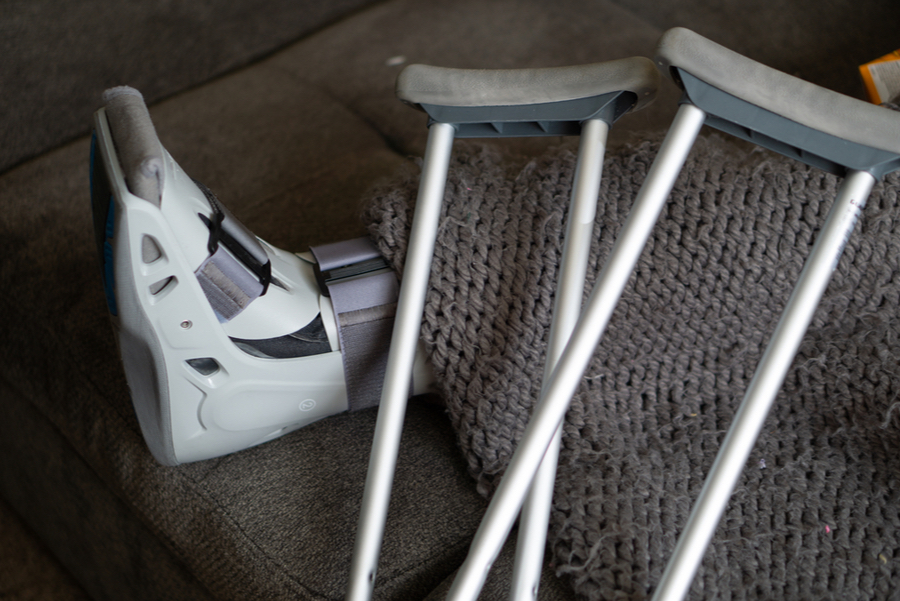What If I Had Preexisting Conditions Before Being Injured In An Accident?

If you had preexisting conditions before being injured in an accident, and the accident exacerbated your condition, you are still legally entitled to seek compensation for your suffering! You may be eligible for a significant monetary recovery with an aggressive attorney on your side who can prove causation and fight for justice.
The Florida Law Group has recovered over $1 billion dollars for injured accident victims and has a winning track record! Call us today to schedule a free consultation if you believe you may have a case, even if one or more preexisting conditions were involved.
Why causation matters in personal injury lawsuits
When a person is injured in an accident – be it a car accident, a motorcycle accident, a slip and fall accident, a swimming pool accident, or something else – that was caused by someone else’s negligence, they can bring a personal injury lawsuit against the responsible party. More often than not, if the responsible party is an individual, the lawsuit will actually be brought against the responsible party’s insurance company, because the individual will likely not have the financial resources necessary to pay a settlement.
The goal of personal injury lawsuits is to recover damages that the plaintiff incurred related to the accident, either in negotiations with the insurance company or at trial. In order for damages to be awarded, an injured accident victim must typically prove that these four things are true:
- That the defendant owed a duty of care to the plaintiff (duty) .
- That the defendant breached that duty of care (breach).
- That the breach led to the accident/plaintiff’s injuries (causation).
- That the plaintiff incurred damages as a result of the accident/injuries (damages).
Insurance companies will do everything in their power to avoid paying out claims to injured accident victims, because doing so protects their bottom line, which means that proving causation is usually the clincher on whether or not compensation can be recovered. If a convincing case is made for 1 and 2, but not 3, then juries will likely not award plaintiffs a verdict. This makes sense! If the injuries were not a direct result of the breach, then the defendant should not have to pay damages to the plaintiff for their injuries because they weren’t responsible for them. That’s why causation is so critical to be able to demonstrate in a personal injury lawsuit. Without clear causation, the amount that the plaintiff can recover is in question.
How preexisting conditions affect causation
Causation is typically the most contested of the four elements. It may be fairly straightforward to prove that there was a duty according to law, and that a duty was breached according to evidence, and that there were monetary damages incurred according to bills and other paperwork. However, there are many factors that can make proving causation difficult, among them any amount of lapsed time between the accident and the lawsuit or the presence of preexisting (symptomatic or asymptomatic) conditions.
If you had a preexisting condition before the accident occurred, insurance companies will use that to try to throw doubt on causation. They will try to claim that your condition would have resulted in damages and suffering anyway, even without the accident, or that there is no way to tell what pain is from the preexisting condition and what pain is a result of the accident.
However, there is an important legal concept known as the “take your victim as you find them” or “eggshell skull” rule that states that the relative frailty of the injured victim is not a valid defense against a claim. Imagine an imaginary case where a person acted negligently and injured someone else, but they were unaware that that person had a skull as thin as an eggshell. That condition would leave them extremely susceptible to severe injuries or even death, but the person who injured them is still liable for all damages that stem from their wrongful actions because they hurt them. Even if they had no idea about the victim’s condition, their negligence caused harm, and they can be held accountable.
The eggshell skull rule should give injured accident victims who had preexisting conditions confidence to pursue a claim. While they may only be able to recover damages to the degree that the accident worsened their condition, either physically or mentally, these damages can still be much more than they realize, which is why it is important to enlist the help of an experienced personal injury lawyer who can give an accurate estimate of how much injuries may be worth.
Examples of how preexisting conditions may affect your personal injury lawsuit
Say that you have a back injury – you herniated a disc while playing basketball with friends. You go to physical therapy and the chiropractor. After a few months your back doesn’t really hurt any more and you are able to regain most of your mobility, though you still have to keep on top of certain stretches, and it does start to hurt if you sit for long periods of time. Eight months from the date of your herniated disc diagnosis, you are roughly rear-ended by someone who was texting and didn’t even look up in time to brake; your back returns to constant pain and you are having difficulty moving around without help or falling asleep because of how much it hurts.
If you filed a lawsuit against the distracted driver’s insurance company, they would probably try to deny your claim or give you a very low offer on the basis that you already had a herniated disc. However, a lawyer can use medical documentation, other evidence, and rhetoric to show that the accident clearly made your herniated disc worse, as you were doing fine in the months leading up to the accident, and make a strong case for maximum compensation for the physical and emotional pain you are suffering.
In some cases, patients have conditions or diseases, not injuries like in the example above, that make accidents more dangerous. These conditions can include osteoporosis, which makes broken bones more likely on impact, or rheumatoid arthritis, which makes joint pain more likely with impact or stress. According to the eggshell skull rule, any condition like this is still not a valid reason why insurance companies should deny or devalue a claim.
3 important things to do if you have a preexisting condition and get injured in an accident
The main takeaway is that even if you do have a preexisting condition, you can still recover monetary compensation, but your case may be more complicated or challenging, so it is necessary to hire a reputable attorney you can trust. That’s the most important thing you can do to help your case! The level of representation you have on your side will make the biggest difference in how much you are able to recover.
There are two other important things to do if you have a preexisting condition and were injured in an accident: (1) get a medical exam as soon as you can after the accident and follow all medical advice at least until your case settles, and (2) be completely transparent with your lawyer. A complete medical evaluation can provide critical evidence that differentiates between new injuries and ones that have been aggravated, and failing to tell your lawyer about your condition could damage your credibility, jeopardize your claim, and even bring about legal action against you in the future.
The Florida Law Group is ranked in the top 1% of personal injury firms nationwide! We will explain your options and relentlessly pursue the correct amount you deserve! You never pay our legal fees until we win a settlement. We have 11 office locations around the state of Florida, including Tampa, North Tampa, St. Petersburg, Largo, New Port Richey, Brandon, Wesley Chapel, Plant City, Lakeland, Orlando, and Miami. Call us today to schedule a free consultation and discuss your case!


